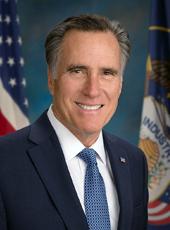"Senator Santorum ought to scare every conservative when it comes to his economic record. He's an economic lightweight. We should know that we're not going to turn around this economy by replacing one former senator with zero job-creating experience with another senator with zero job-creating experience." —Andrea Saul, Romney Spokesperson
Senator Santorum's Economic Plan? "May Be The Worst Idea Of Any Of The Republican Candidates":
Tax Foundation's Will McBride: "[Santorum's Plan] May Be The Worst Idea Of Any Of The Republican Candidates. ... No Other Candidate Has Proposed Such A Grossly Unfair System." (Bernie Becker, "Some Conservatives See Santorum's Tax Plan As 'Welfare In Disguise'," The Hill, 1/7/12)
AEI's Kevin Hassett: "[Santorum's Plan] Is Just The Height Of Economic Illiteracy. It's Inexcusable.'" (Dan Hirschhorn, "Rick Loses Market Value," The Daily, 2/17/12)
The Heritage Foundation's Curtis Dubay: "This Is Not Free-Market Economics." "This is not free-market economics, this is trying to tilt the market toward manufacturing, and it will hurt the economy rather than help it, because resources would be artificially diverted from other sectors of the economy to manufacturing." (Dan Hirschhorn, "Rick Loses Market Value," The Daily, 2/17/12)
The Washington Post's Jennifer Rubin: "A Quintessentially D.C.-Centric View Of The Economy." "This is a quintessentially D.C.-centric view of the economy. The federal government, in his scheme, will pick one sector over another, rather than getting to a flatter, fairer tax code across the board. ... It is at bottom a provincial viewpoint that some jobs are better than others. ... Santorum's plan reflects the perspective of a Pennsylvania senator who saw jobs decline in one sector in his state. It's the same viewpoint that caused him to vote against NAFTA and free trade deals and side with Big Labor. It might be temporarily good for Pennsylvania, but it's rotten economic policy." (Jennifer Rubin, "Santorum's Problem Isn't 'Insiderism,' It's Economic Literacy," The Washington Post, 2/14/12)
Senator Santorum's Idea Of Tax Reform? "Picking Winners And Losers Through The Tax Code":
The Heritage Foundation's Curtis Dubay: "Giving A Preferential Rate Is Picking Winners And Losers Through The Tax Code... The Goal Of Tax Reform Should Be A Neutral Tax Code." (Dan Hirschhorn, "Rick Loses Market Value," The Daily, 2/17/12)
Economist And Former CBO Director Douglas Holtz-Eakin: Santorum's Plan Is "Completely At Odds With Tax Reform." "Douglas Holtz-Eakin of American Action Forum makes the point that the tax rate break for manufacturers is not all that different from President Obama's tax credit for manufacturing firms, and a super-duper tax credit for 'high tech' firms. Such schemes, he says, are 'completely at odds with tax reform.'" (Jennifer Rubin, "Santorum's Problem Isn't 'Insiderism,' It's Economic Literacy," The Washington Post, 2/14/12)
Club For Growth's Andy Roth: Santorum's Plan Is "Bad Tax Policy." "Andy Roth from Club for Growth calls the manufacturing-favoritism 'bad tax policy.' He tells me that it suggests Santorum believes that 'government should be limited except when he is in charge.'" (Jennifer Rubin, "Santorum's Problem Isn't 'Insiderism,' It's Economic Literacy," The Washington Post, 2/14/12)
Bloomberg: "Santorum Says He Doesn't Believe The U.S. Government Should Pick The Economy's 'Winners And Losers.' Except For Manufacturers. And Small Businesses. And Families." (David J. Lynch, "Santorum Picks Own 'Winners And Losers' Even As He Chides Obama," Bloomberg, 2/17/12)
Senator Santorum's Record? Fiscal Conservatism Was "Not [His] Strong Suit":
Santorum Has Admitted He Is "No Longer A Deficit Hawk ... I'll Tell You Why. I Had To Spend The Surpluses." "Confronted with projected deficits until fiscal 2007, senior GOP lawmakers are backing away from long-standing rhetoric about the government's duty to live within its means. 'I came to the House as a real deficit hawk, but I am no longer a deficit hawk,' said Sen. Rick Santorum (R-Pa.). 'I'll tell you why. I had to spend the surpluses. Deficits make it easier to say no.'" (Hans Nichols, "Leadership Lines Up With Deficit Doves," The Hill, 2/5/03)
Cato Institute's Michael Tanner: Fiscal Conservatism Is "Not Santorum's Strong Suit." "[T]he Tea Party and 2010 elections were largely about economic issues and the desire to limit the size, cost, and intrusiveness of government. And those issues are not Santorum's strong suit. ... He never met an earmark that he didn't like. In fact, it wasn't just earmarks for his own state that he favored, which might be forgiven as pure electoral pragmatism, but earmarks for everyone..." (Michael Tanner, "Santorum's Big-Government Conservatism," National Review, 1/4/12)
Federal Spending Increased By Roughly 80% During Santorum's Time In The Senate. In 1995, Santorum's first year in the Senate, federal spending was approximately $1.516 trillion. By 2007, when Santorum left the Senate, spending had increased to approximately $2.729 trillion. ("Fiscal Year 2012 Historical Tables Of The U.S. Government," Office of Management and Budget, 2/14/11)
"Santorum Acknowledged Voting To Raise The Federal Debt Ceiling At Least Five Times While In Congress." (Charles Babington, "Gingrich Defends His Attacks," The Associated Press, 1/15/12)
Santorum Brought Over $1 Billion In Pork-Barrel Spending Back To Pennsylvania. "In all, Taxpayers for Common Sense estimated, Mr. Santorum helped secure more than $1 billion in earmarks during his Senate career, which stretched from 1995 through 2006." (Michael Luo and Mike McIntire, "Donors Gave As Santorum Won Earmarks," The New York Times, 1/15/12)
- Santorum: "I Have Had A Lot Of Earmarks. In Fact, I'm Very Proud Of All The Earmarks I've Put In Bills. I'll Defend Earmarks." (Fox News' "Hannity," 2/26/09)
Club For Growth: Toward The End Of His Tenure, Santorum's Spending Record Got Even Worse. "In the 2003-2004 session of Congress, Santorum sponsored or cosponsored 51 bills to increase spending, and failed to sponsor or co-sponsor even one spending cut proposal. In his last Congress (2005-2006), he had one of the biggest spending agendas of any Republican..." ("2012 Presidential White Paper #4: Former Senator Rick Santorum," Club For Growth, 6/6/11)
Mitt Romney, Romney Campaign Press Release - Rick Santorum: Economic Lightweight Online by Gerhard Peters and John T. Woolley, The American Presidency Project https://www.presidency.ucsb.edu/node/300898

